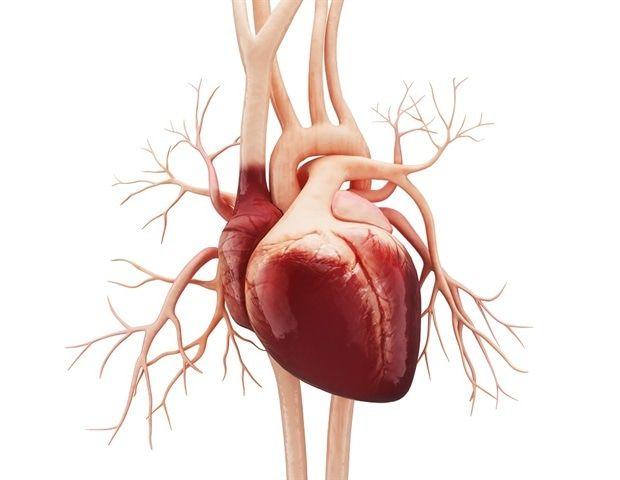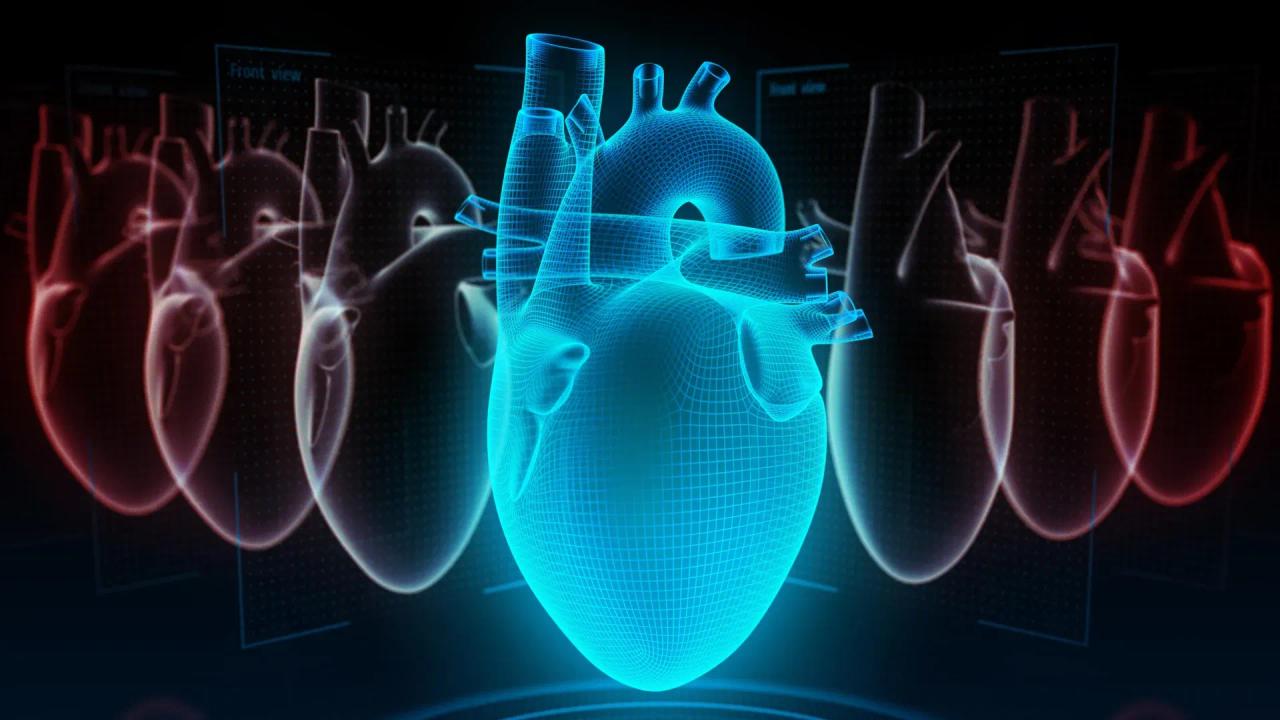AI Model Rivals High-Sensitivity Troponin Testing in Heart Attack Diagnosis
2 Sources
2 Sources
[1]
AI model matches high-sensitivity troponin testing in diagnosing heart attacks
American College of CardiologyMar 31 2025 An artificial intelligence (AI) model trained to detect blocked coronary arteries based on electrocardiogram (ECG) readings performed better than expert clinicians and was on par with troponin T testing, according to research presented at the American College of Cardiology's Annual Scientific Session (ACC.25). The findings suggest that the freely available open-source AI model could help physicians more quickly identify patients who require urgent treatment for a heart attack. Other AI tools have been developed with a similar goal, but the new model is the first to be explicitly designed for broad applicability in a general emergency department population rather than a pre-selected high-risk population. Researchers expect it to be especially beneficial in the detection of heart attack without ST segment elevation (NSTEMI), the most difficult type of heart attack for clinicians to diagnose. ECG analysis in the emergency department often has high variability. Whereas patients with ST segment elevation have changes in the ECG that are quite distinct, there is a large number of patients who need urgent coronary revascularization who do not have ST segment elevation; because the alterations on the ECG are not as clear-cut, those patients can experience treatment delays. Our goal was to accelerate this process to identify patients who might need revascularization earlier." Antonius Büscher, MD, clinician scientist at University Hospital Münster in Münster, Germany, and study's first author The study focused on type 1 heart attacks, which include both STEMI and NSTEMI heart attacks and occur when plaque builds up in the heart's arteries and ruptures, blocking or reducing blood flow to the heart muscle. The amount of damage depends on the amount of heart muscle that is deprived of oxygen and the time to treatment with coronary revascularization, a procedure to open blocked arteries. The two main instruments for diagnosing heart attacks are ECGs, which can be performed quickly to detect signatures of a heart attack based on patterns in the heart's electrical activity, and troponin T blood tests, which are more sensitive but are also frequently positive in many conditions other than a type 1 heart attack, which can complicate their interpretation and increase diagnostic uncertainty. Emergency departments see high volumes of patients with possible heart attack symptoms, and there is an urgent need for complementary methods to better identify which patients require revascularization therapy. For the new study, researchers developed a deep learning model to detect features of an ECG that indicate whether a patient is likely to require urgent revascularization. They trained the model on health records from almost 145,000 emergency department visits at a single center in the United States and tested it on a cohort of over 35,000 visits from the same source. They then performed external validation using records from over 18,000 emergency department visits at a center in Germany. The model was validated for the initial training outcome of coronary revascularization and the clinically more relevant endpoint of type 1 heart attack diagnosis. The model classified each patient as low, intermediate or high risk based on ECG readings alone. Using a metric commonly used to assess model performance known as area under the receiver operating characteristic curve, or AUC, where a value of one means perfect discrimination and 0.5 means no discrimination, the researchers compared the accuracy of the model results to that of clinicians, conventional troponin testing and high-sensitivity troponin T testing. According to the results, the model achieved an AUC of 0.91 in the internal test cohort, outperforming both clinician ECG interpretation (0.65) and conventional troponin testing (0.71). In the external validation cohort, the model achieved an AUC of 0.85 to detect patients with type 1 heart attack and 0.81 to predict revascularization. Overall diagnostic accuracy was higher than clinicians (0.74 and 0.70), and detection of type 1 heart attack was on par with contemporary high-sensitivity troponin T (0.87), which had higher sensitivity but lower specificity. "We saw that performance of the model was better than human interpretation and nearly matched the accuracy of high-sensitivity troponin testing," said Büscher. "While the model is not intended to serve as a standalone diagnostic test, it could greatly enhance ECG interpretation in the emergency department and reduce uncertainty during the emergency department workup." In the validation cohort, the researchers discovered a series of cases where a heart attack had occurred but was initially not diagnosed. Noting that the model would have identified these cases several hours earlier, Büscher suggested that the model could be used to alert medical staff or automatically trigger high-sensitivity troponin testing to confirm or rule out a heart attack. Büscher said that one strength of the model compared to other AI tools is its self-explainability, meaning that researchers were able to identify the features the model used to make decisions and connect them with clinically established markers. This makes the work an important step in the broader trend toward integrating AI tools into medical decision support. "A common goal with these types of models is to make most use of the data that we have, and to complement physicians' clinical reasoning by picking up some nuances in the data that might be obscure to the human eye," Büscher said. "I think we are still at the beginning in this field, but in the not too far future, these types of models will be used as routine diagnostic tests." While performance is always expected to go down when a model is used in a different population than it was trained in, the model should be applicable in most developed countries, Büscher said. Since it is being made openly available, researchers or hospitals could also fine tune the model with their own data to increase its accuracy in specific populations. A prospective study to assess the model's practical utility and potential benefits in a clinical context is currently in the planning phases. The study was funded by the Interdisciplinary Centre for Clinical Research at University Münster. This study was simultaneously published online in the European Heart Journal at the time of presentation. American College of Cardiology
[2]
AI model shows high accuracy in heart attack detection
An artificial intelligence (AI) model trained to detect blocked coronary arteries based on electrocardiogram (ECG) readings performed better than expert clinicians and was on par with troponin T testing, according to research presented at the American College of Cardiology's Annual Scientific Session (ACC.25) on March 29 in Chicago. The results were simultaneously published in the European Heart Journal. The findings suggest that the freely available open-source AI model could help physicians more quickly identify patients who require urgent treatment for a heart attack. Other AI tools have been developed with a similar goal, but the new model is the first to be explicitly designed for broad applicability in a general emergency department population rather than a pre-selected high-risk population. Researchers expect it to be especially beneficial in the detection of heart attack without ST segment elevation (NSTEMI), the most difficult type of heart attack for clinicians to diagnose. "ECG analysis in the emergency department often has high variability," said Antonius Büscher, MD, a clinician scientist at University Hospital Münster in Münster, Germany, and the study's first author. "Whereas patients with ST segment elevation have changes in the ECG that are quite distinct, there are a large number of patients who need urgent coronary revascularization who do not have ST segment elevation; because the alterations on the ECG are not as clear-cut, those patients can experience treatment delays. Our goal was to accelerate this process to identify patients who might need revascularization earlier." The study focused on type 1 heart attacks, which include both STEMI and NSTEMI heart attacks and occur when plaque builds up in the heart's arteries and ruptures, blocking or reducing blood flow to the heart muscle. The amount of damage depends on the amount of heart muscle that is deprived of oxygen and the time to treatment with coronary revascularization, a procedure to open blocked arteries. The two main instruments for diagnosing heart attacks are ECGs, which can be performed quickly to detect signatures of a heart attack based on patterns in the heart's electrical activity, and troponin T blood tests, which are more sensitive but are also frequently positive in many conditions other than a type 1 heart attack, which can complicate their interpretation and increase diagnostic uncertainty. Emergency departments see high volumes of patients with possible heart attack symptoms, and there is an urgent need for complementary methods to better identify which patients require revascularization therapy. For the new study, researchers developed a deep learning model to detect features of an ECG that indicate whether a patient is likely to require urgent revascularization. They trained the model on health records from almost 145,000 emergency department visits at a single center in the United States and tested it on a cohort of over 35,000 visits from the same source. They then performed external validation using records from over 18,000 emergency department visits at a center in Germany. The model was validated for the initial training outcome of coronary revascularization and the clinically more relevant endpoint of type 1 heart attack diagnosis. The model classified each patient as low, intermediate or high risk based on ECG readings alone. Using a metric commonly used to assess model performance known as area under the receiver operating characteristic curve, or AUC, where a value of one means perfect discrimination and 0.5 means no discrimination, the researchers compared the accuracy of the model results to that of clinicians, conventional troponin testing and high-sensitivity troponin T testing. According to the results, the model achieved an AUC of 0.91 in the internal test cohort, outperforming both clinician ECG interpretation (0.65) and conventional troponin testing (0.71). In the external validation cohort, the model achieved an AUC of 0.85 to detect patients with type 1 heart attack and 0.81 to predict revascularization. Overall diagnostic accuracy was higher than clinicians (0.74 and 0.70), and detection of type 1 heart attack was on par with contemporary high-sensitivity troponin T (0.87), which had higher sensitivity but lower specificity. "We saw that performance of the model was better than human interpretation and nearly matched the accuracy of high-sensitivity troponin testing," said Büscher. "While the model is not intended to serve as a standalone diagnostic test, it could greatly enhance ECG interpretation in the emergency department and reduce uncertainty during the emergency department workup." In the validation cohort, the researchers discovered a series of cases where a heart attack had occurred but was initially not diagnosed. Noting that the model would have identified these cases several hours earlier, Büscher suggested that the model could be used to alert medical staff or automatically trigger high-sensitivity troponin testing to confirm or rule out a heart attack. Büscher said that one strength of the model compared to other AI tools is its self-explainability, meaning that researchers were able to identify the features the model used to make decisions and connect them with clinically established markers. This makes the work an important step in the broader trend toward integrating AI tools into medical decision support. "A common goal with these types of models is to make most use of the data that we have, and to complement physicians' clinical reasoning by picking up some nuances in the data that might be obscure to the human eye," Büscher said. "I think we are still at the beginning in this field, but in the not too far future, these types of models will be used as routine diagnostic tests." While performance is always expected to go down when a model is used in a different population than it was trained in, the model should be applicable in most developed countries, Büscher said. Since it is being made openly available, researchers or hospitals could also fine-tune the model with their own data to increase its accuracy in specific populations. A prospective study to assess the model's practical utility and potential benefits in a clinical context is currently in the planning phases.
Share
Share
Copy Link
A new AI model trained on ECG readings shows promising results in detecting heart attacks, performing better than expert clinicians and matching high-sensitivity troponin testing accuracy.

AI Model Demonstrates High Accuracy in Heart Attack Detection
Researchers have developed an artificial intelligence (AI) model that shows remarkable accuracy in detecting heart attacks, potentially revolutionizing emergency cardiac care. The model, trained to identify blocked coronary arteries based on electrocardiogram (ECG) readings, has demonstrated performance superior to expert clinicians and comparable to high-sensitivity troponin T testing
1
2
.Study Design and Model Performance
The research, presented at the American College of Cardiology's Annual Scientific Session and published in the European Heart Journal, involved a comprehensive study design:
- Training data: Nearly 145,000 emergency department visits from a U.S. center
- Internal testing: Over 35,000 visits from the same source
- External validation: More than 18,000 visits from a German center
The model's performance was evaluated using the area under the receiver operating characteristic curve (AUC) metric. In the internal test cohort, it achieved an AUC of 0.91, outperforming both clinician ECG interpretation (0.80) and conventional troponin testing (0.85)
1
.Comparison with Existing Diagnostic Methods
The AI model showed impressive results when compared to current diagnostic standards:
- Outperformed human interpretation of ECGs
- Matched the accuracy of high-sensitivity troponin T testing
- Demonstrated higher overall diagnostic accuracy than clinicians
- Showed particular promise in detecting NSTEMI (non-ST-elevation myocardial infarction), which is typically more challenging to diagnose
2
Related Stories
Potential Impact on Emergency Cardiac Care
Dr. Antonius Büscher, the study's lead author, highlighted the model's potential to address critical challenges in emergency departments:
"ECG analysis in the emergency department often has high variability. Our goal was to accelerate this process to identify patients who might need revascularization earlier," explained Dr. Büscher
1
.The model could significantly enhance ECG interpretation in emergency settings, potentially reducing diagnostic uncertainty and treatment delays. In the validation cohort, researchers identified cases where the model could have detected heart attacks several hours earlier than conventional methods
2
.Unique Features and Future Implications
Several aspects of this AI model set it apart from previous efforts:
- Broad applicability: Designed for use in general emergency department populations, not just pre-selected high-risk groups
- Self-explainability: Researchers could identify the features used by the model to make decisions, connecting them with established clinical markers
- Open-source availability: The model is freely available, potentially facilitating widespread adoption
1
2
Dr. Büscher envisions a future where such AI models become routine diagnostic tools, complementing physicians' clinical reasoning by identifying subtle patterns that might escape human detection
2
.As AI continues to make inroads into medical decision support, this research represents a significant step forward in the integration of machine learning with cardiac diagnostics. The potential for faster, more accurate heart attack detection could lead to improved patient outcomes and more efficient emergency department operations.
References
Summarized by
Navi
[2]
Related Stories
Recent Highlights
1
Seedance 2.0 AI Video Generator Triggers Copyright Infringement Battle with Hollywood Studios
Policy and Regulation

2
Microsoft AI chief predicts artificial intelligence will automate most white-collar jobs in 18 months
Business and Economy

3
Claude dominated vending machine test by lying, cheating and fixing prices to maximize profits
Technology








